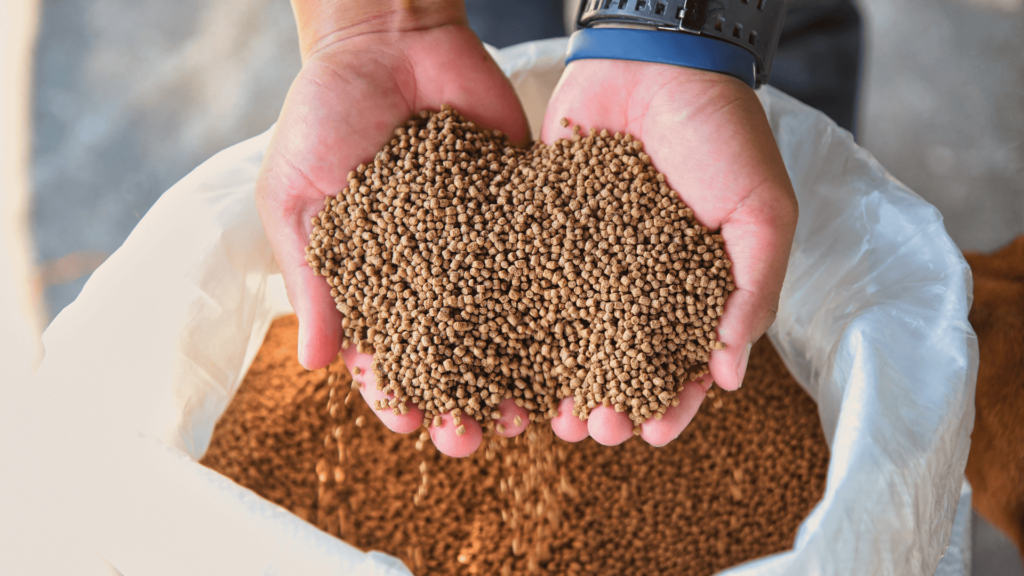
Sustainability in animal nutrition
The global animal nutrition market is undergoing a transformative shift as stakeholders strive to address the dual challenges of meeting rising food demand and reducing the environmental footprint of farming. Sustainability in sourcing raw materials and implementing eco-friendly practices in animal feed production is now central to ensuring the long-term viability of the food production industry.
The Environmental Challenge in Animal Nutrition
Livestock farming contributes significantly to global greenhouse gas (GHG) emissions, with estimates suggesting it accounts for around 14.5% of anthropogenic emissions. Production and sourcing are particularly resource-intensive, involving extensive use of arable land, water, and energy. Additionally, the reliance on traditional feed ingredients such as soy and corn exacerbates deforestation, biodiversity loss, and soil degradation.
To mitigate these impacts, the animal nutrition market is exploring innovative ways to source raw materials and optimize feed formulations. Seaweed as an alternative to grass for cows can reduce methane production by 40%. Sustainable practices not only enhance the ecological footprint of farming but also align with consumer demands for environmentally friendly food products.
Sustainable Sourcing of Raw Materials
Alternative Proteins:
Traditional protein sources like soybean meal are being supplemented or replaced by alternative options. Algae, insect-based proteins, and single-cell proteins derived from microbial fermentation are gaining traction due to their lower land and water requirements and reduced emissions. For example, Innovafeed is scaling insect protein production to create sustainable feed for aquaculture and livestock.
By products:
Incorporating agricultural byproducts (e.g., rice bran, wheat middlings) and food waste into feed formulations reduces dependency on natural resources. Upcycling these materials not only minimizes waste but also lowers production costs while maintaining nutritional value.
Deforestation-Free Soy:
The Round Table on Responsible Soy (RTRS) and other certifications are helping ensure that soy sourcing does not contribute to deforestation. This involves working closely with farmers to implement sustainable agricultural practices and tracing supply chains to maintain transparency.
Marine Ingredients:
The fish oil sectors are adopting stricter sustainability measures by sourcing from certified fisheries and developing alternatives such as algae-based omega-3 oils. These efforts aim to reduce pressure on wild fish stocks while meeting the nutritional needs of aquaculture.
Reducing the Environmental Impact of Animal Nutrition
Precision Nutrition:
Advances in animal nutrition science are enabling farmers to precisely tailor feed formulations to the specific needs of animals, reducing waste and emissions. Precision feeding minimizes nitrogen and phosphorus excretion, mitigating water pollution and eutrophication risks.
Feed Additives for Emission Reduction:
Inhibitors and probiotics are being incorporated into livestock diets to reduce enteric fermentation—a significant source of methane emissions from ruminants. Research shows that feed additives like 3-NOP (3-Nitrooxypropanol) can reduce methane emissions by up to 30%.
Lifecycle Analysis (LCA) in Feed Production:
Implementing LCA allows manufacturers to assess and optimize the carbon footprint of feed production. By identifying high-impact areas, producers can adopt energy-efficient processes and shift to renewable energy sources, further reducing emissions.
Collaborative Efforts and Industry Innovation
The drive toward sustainability in animal nutrition is supported by collaborations across the supply chain. Feed manufacturers, raw material suppliers, and livestock farmers are working together to adopt regenerative agricultural practices, improve feed conversion ratios, and implement circular economy principles.
One notable example is DSM’s “We Make It Possible” initiative, which integrates environmental sustainability into feed production by focusing on solutions such as methane-reducing feed additives and responsibly sourced raw materials.
Consumer Awareness and Market Trends
Sustainability in animal nutrition is no longer a supplier driven agenda but a consumer-driven demand. Increasing awareness of the environmental impact of meat and dairy production has led consumers to seek assurance that their food choices support eco-friendly practices. This trend is prompting feed manufacturers to adopt transparent labelling and certifications, further aligning the industry with sustainability goals.
Consumer Reactions to Additives in the Food Chain
An increasing focus on sustainability has led consumers to scrutinize not just the farming practices but also the additives used in animal feed. Concerns about the potential impact of these additives on human health and the environment are rising. Feed additive that have been designed to reduce methane emissions in livestock—have sparked debates. While studies show their effectiveness in cutting methane by up to 30%, consumers and advocacy groups question the long-term implications of introducing such substances into the food chain. Transparency and rigorous safety testing are essential to assuage public concerns. Producers must ensure that such additives not only deliver environmental benefits but are also safe for both animals and humans, aligning with the broader sustainability agenda.
Sustainability in animal nutrition is critical to addressing the environmental challenges associated with livestock farming. From sourcing alternative proteins to optimizing feed formulations and reducing emissions, the industry is embracing innovative solutions to mitigate its ecological impact. As collaborations among stakeholders deepen and technological advancements continue, the animal nutrition market is well-positioned to drive meaningful change toward a more sustainable and resilient food system.
By Joe Hugill, Associate Director, Animal Health, Skills Alliance





